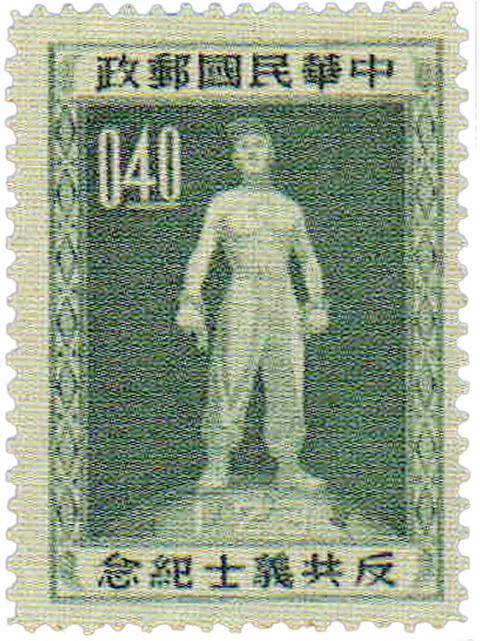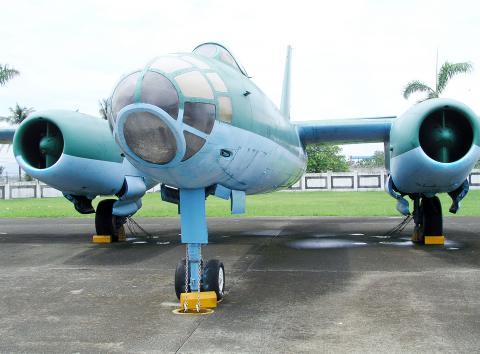Taiwan in Time: Nov. 9 to Nov. 15
It was supposed to be a routine air force bombing drill near Hangzhou, China, but Li Xianbin (李顯斌) had other plans.
Although the weather wasn’t ideal, the 28-year-old pilot of an Il-28 Soviet jet bomber had already decided that the morning of Nov. 11, 1965 would be a once-in-a-lifetime chance to execute his plan.

Photo courtesy of Wikimedia Commons
Without warning, Li turned his plane southward. His crewmates, Lian Baosheng (廉保生) and Li Caiwang (李才旺), realized what was going on and tried to stop their pilot, but it was too late.
They were headed toward Taiwan.
Although the Chinese Nationalist Party (KMT) rulers of Taiwan offered a reward for any Chinese soldiers who defected (as did China for Taiwan’s defectors), Li Xianbin insisted later that he didn’t do it for the money, but that he couldn’t take the “inhumane practices” of the Chinese Communist Party (CCP) any more.

Photo courtesy of Wikimedia Commons
It was later indicated that Li had clashed with his superiors over military promotion issues and was also upset with the CCP over the death of several of his relatives during a famine.
Between 1960 and 1989, about a dozen Chinese fighter planes successfully made the cross-strait “defection to freedom” (投奔自由), as the KMT called it in those days, while a lesser number of Taiwanese ones flew the other way in what their communist rivals called a “revolutionary return” (起義歸來). Each side ceased their reward policy as tensions eased in 1988.
Li flew the plane dangerously close to the water to avoid radar detection until he approached the military airport in Taoyuan. Due to the weather and unfamiliarity with the terrain, he couldn’t land properly and damaged the nose and front wheels of the plane.
The official account states that Lian died in the crash, but both Li Caiwang and Li Xianbin later claimed that Lian committed suicide because he didn’t want to come to Taiwan. Li Caiwang received an award of about NT$1.4 million, while Li Xianbin took home double that amount.
Since their arrival took place right before KMT cofounder Sun Yat-sen’s (孫逸仙) birthday celebration, the media touted them as the “best birthday present” and both took part in the festivities.
Both ended up serving in Taiwan’s air force, but neither were allowed to fly again, reportedly due to the KMT’s fear that they would bring military secrets back to China.
The KMT pronounced all three as anti-communist martyrs (反共義士), and portrayed them as heroes. They participated in various anti-communist propaganda activities and even made it into elementary school textbooks as freedom-seeking patriots. After the communists learned of Lian’s suicide years later, they made him a revolutionary martyr (革命烈士).
The Ministry of National Defense planned to utilize these defectors to persuade the communists to surrender, to serve as propaganda to the public and for possible espionage.
Li Caiwang retired in 1977 and emigrated to the US. In 1983, he returned to China, claiming to authorities that he was forced by Li Xianbin to defect and re-declared his loyalty to the CCP, denouncing his anti-communist martyr designation.
Li Xianbin followed a similar path, emigrating to Canada in 1990. On Dec. 16, 1991, he and his wife went to China to visit his ailing mother. He had had reportedly received repeated guarantees from China’s embassy that the 20-year statute of limitations had expired and he would not be arrested for his prior actions.
The visit went well, but as Li Xianbin was about to return to Canada, he was arrested and sentenced to 15 years in prison as a “defector and traitor.” Alas, a provision allows any crime punishable by death or life in prison to be prosecuted past the 20-year statute of limitations with the permission of the Supreme People’s Procuratorate, China’s top prosecuting body.
Li Xianbin was paroled in 2002 because of poor health, and died of cancer in Shanghai about six months later, in the very land that he had risked everything to escape from.
Taiwan in Time, a column about Taiwan’s history that is published every Sunday, spotlights important or interesting events around the nation that have anniversaries this week.

April 14 to April 20 In March 1947, Sising Katadrepan urged the government to drop the “high mountain people” (高山族) designation for Indigenous Taiwanese and refer to them as “Taiwan people” (台灣族). He considered the term derogatory, arguing that it made them sound like animals. The Taiwan Provincial Government agreed to stop using the term, stating that Indigenous Taiwanese suffered all sorts of discrimination and oppression under the Japanese and were forced to live in the mountains as outsiders to society. Now, under the new regime, they would be seen as equals, thus they should be henceforth

Last week, the the National Immigration Agency (NIA) told the legislature that more than 10,000 naturalized Taiwanese citizens from the People’s Republic of China (PRC) risked having their citizenship revoked if they failed to provide proof that they had renounced their Chinese household registration within the next three months. Renunciation is required under the Act Governing Relations Between the People of the Taiwan Area and the Mainland Area (臺灣地區與大陸地區人民關係條例), as amended in 2004, though it was only a legal requirement after 2000. Prior to that, it had been only an administrative requirement since the Nationality Act (國籍法) was established in

With over 80 works on display, this is Louise Bourgeois’ first solo show in Taiwan. Visitors are invited to traverse her world of love and hate, vengeance and acceptance, trauma and reconciliation. Dominating the entrance, the nine-foot-tall Crouching Spider (2003) greets visitors. The creature looms behind the glass facade, symbolic protector and gatekeeper to the intimate journey ahead. Bourgeois, best known for her giant spider sculptures, is one of the most influential artist of the twentieth century. Blending vulnerability and defiance through themes of sexuality, trauma and identity, her work reshaped the landscape of contemporary art with fearless honesty. “People are influenced by

Three big changes have transformed the landscape of Taiwan’s local patronage factions: Increasing Democratic Progressive Party (DPP) involvement, rising new factions and the Chinese Nationalist Party’s (KMT) significantly weakened control. GREEN FACTIONS It is said that “south of the Zhuoshui River (濁水溪), there is no blue-green divide,” meaning that from Yunlin County south there is no difference between KMT and DPP politicians. This is not always true, but there is more than a grain of truth to it. Traditionally, DPP factions are viewed as national entities, with their primary function to secure plum positions in the party and government. This is not unusual